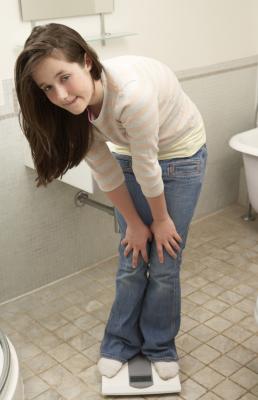Maintaining healthy body weight proves challenging for an ever-growing number of teens. Because teens are in such a state of growth and development, it can be easy for these youngsters to lose track of their ideal body weights and pack on the pounds. As a parent of a teenager, you can help guide your child toward healthy eating and monitor his growth to ensure that he doesn’t venture out of this ideal body weight range.
Importance
While being an overweight teen may not seem like a big deal, in truth overweight teens are susceptible to an assortment of issues. Overweight teens, like adults, are at a greater risk of having high blood pressure, developing diabetes or even experiencing heart problems. Overweight teens are also more likely to struggle with weight later in life. In fact, teens who are overweight are 16 times more likely to become obese adults.
Impact of Puberty
Puberty can play a major part in teen weight issues. The degree to which a teen has progressed through puberty has an impact on the teen’s ideal weight. Teens who have moved through this developmental stage may be better muscled or have more development-related body fat, and as a result may weigh more than prepubescent teens of the same height.
Importance of Height
When considering what weight is the right weight, it is vital to take height into consideration. The Body Mass Index (BMI), a weight comparison tool, takes into consideration gender, height and weight. All three factors play a part in determining a teen’s ideal weight. Teens who have hit that growth spurt and now tower above their peers will likely weigh more than those who have yet to hit this time of growth.
Comparisons
The easiest way to determine if your teen is within the ideal weight range is to compare his body mass rating with others. If your teen’s body mass index number is in the 50th percentile, he is just about average. To determine your teen’s body mass index number, go to the BMI calculator at the KidsHealth website. If his rating is below the 5th percentile, he is underweight. If his rating is above the 85th percentile, he is either overweight or obese and should perhaps consider some exercise and diet modifications.
Seeking Doctor’s Advice
Before you make any diet or exercise decisions in regards to your teen, consult his doctor. Because your teen is still growing, it is vital that he gets the nutrition he needs. Your child’s doctor can give you some ideas as to how you can reduce his weight without starving his body of the nutrients it needs for proper growth and development.





